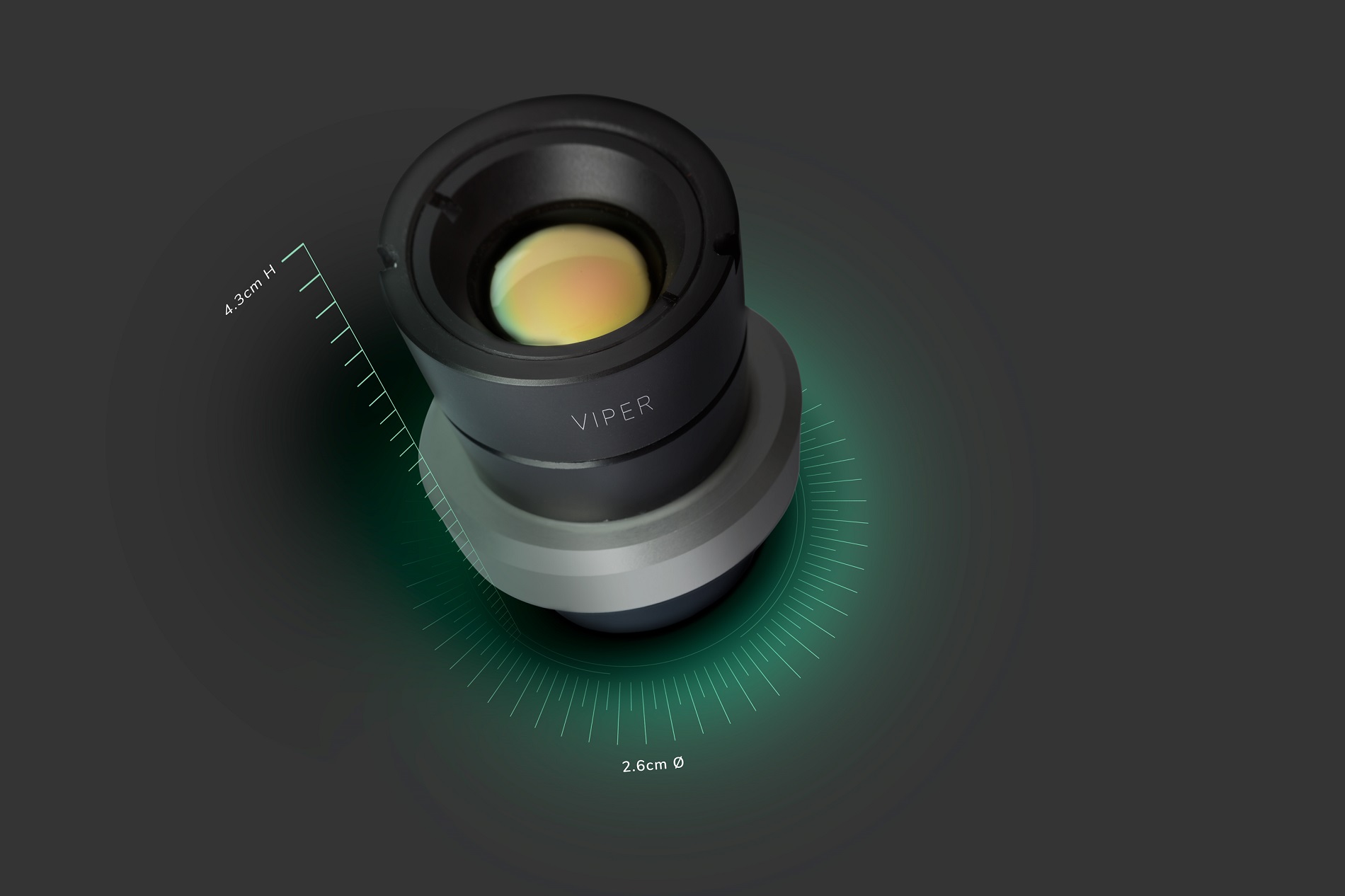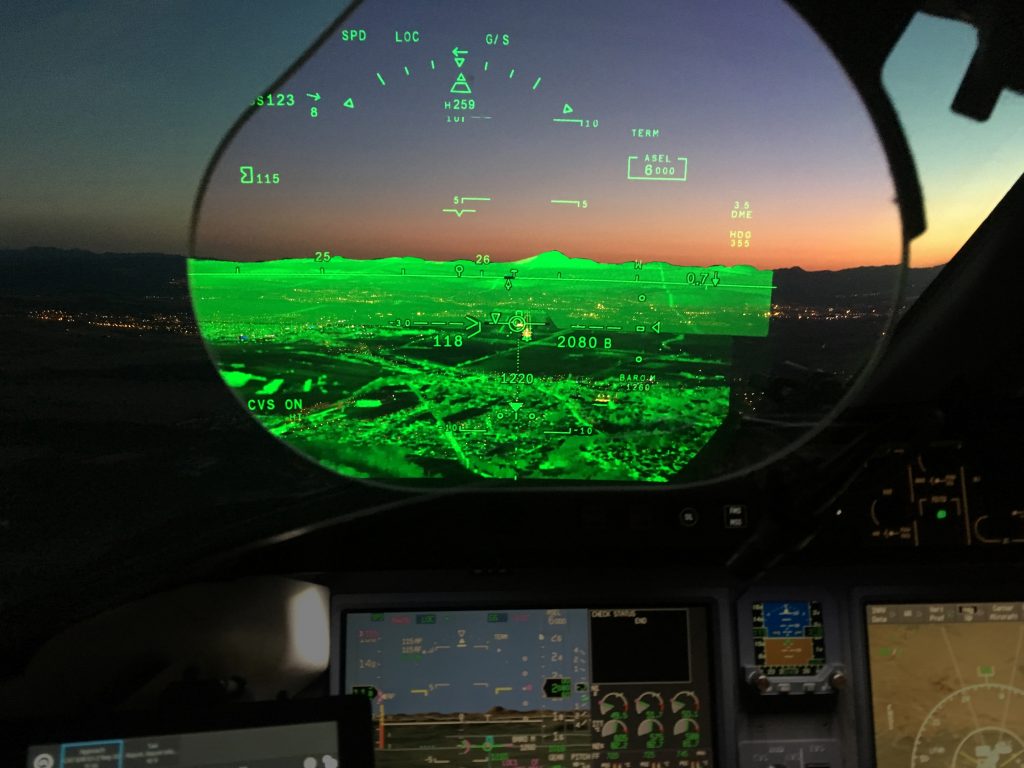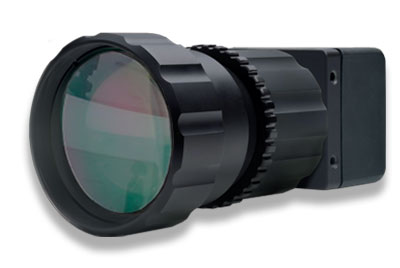Yokneam, Israel – September 11, 2017 9:00 AM EST – AdaSky, a startup comprised of industry veterans from the Israeli semiconductor and sensor market, launches the first Far Infrared (FIR) perception solution specifically designed for the automotive industry. The solution combines an FIR thermal camera with advanced computer vision algorithms to let autonomous vehicles see and understand the road and their surroundings in any conditions.
AdaSky’s first product, Viper, is comprised of a high-performing thermal camera and state-of-the-art machine vision algorithms, together in one complete solution, that can be added to any autonomous vehicle to enable it to see better and analyze its surroundings. Viper passively collects FIR signals through detection of thermal energy radiated from objects and their body heat. AdaSky’s algorithms process the signals collected by the camera to provide accurate object detection and scene analysis, giving the vehicle the ability to precisely detect pedestrians at a few hundreds of meters, allowing more distance in which to react to driving decisions.
Viper is the first high-resolution, thermal camera for autonomous vehicles with minimal size, weight and power consumption and no moving parts - at a price suited for mass market. Viper generates a new layer of information, originated from a different band of the electromagnetic spectrum, significantly increasing performance for classification, identification, and detection of objects and of vehicle surroundings, both near and far range.
To achieve 24/7 autonomous driving, vehicles must first have accurate sight and perception without fail in dynamic lighting conditions, in direct sunlight, in the face of oncoming headlights and in harsh weather. Today, that is not possible. New autonomous vehicles will have cameras, Radar, and Lidar; but each type has drawbacks. None of these sensors meet safety standards necessary for 24/7 autonomous driving, meaning vehicles will still need to pull over or hand over control to the driver in many cases. AdaSky’s solution is built to give the vehicle the additional layer of information and processing it needs to be fully-autonomous through improved perception, detection, and segmentation.
“We saw a powerful opportunity in the market. The most basic need for an autonomous vehicle is to be able to see and interpret what is happening around it, regardless of road conditions. Existing sensors and cameras available today can’t meet this need on their own,” said AdaSky Founder, President and CEO, Avi Katz. “To address this, we turned to FIR technology, which has been proven in other vertical industries and is mature enough to scale. We adapted the technology for the automotive industry and have been able to create a solution that performs at its best in use cases where other sensors fail.”
Common examples of use cases where other sensors fail include inaccurate segmentation of images, such as humans, animals or bicycles in advertisements on buildings or buses, and inaccurate perception at night or in inclement weather such as fog, snow or rain. Dynamic lighting conditions where sudden changes of lighting create momentary blindness can also cause issues for self-driving cars and are quite common, like when a vehicle is entering or exiting a tunnel and the light suddenly goes from bright to dark.
Classified by the Society for Automotive Engineers International, level 3, 4 or 5 autonomous vehicles are rated for partial to full automation. For OEMs to achieve the safety requirements necessary to deliver on these levels the industry needs a perception solution that can see and understand in all conditions for reliable monitoring of the road environment always.
Founded in January 2016, AdaSky recently came out of stealth mode and began delivering Viper prototypes for evaluation to tier-one suppliers and automotive OEMs.
“Feedback from testing has reflected that thermal sensing, in combination with the other sensors, can greatly improve general object, pedestrian, and animal detection. Our FIR technology enables perception even beyond what evaluators initially thought possible,” said Dror Meiri, VP of business development, AdaSky. “The time for FIR in the automotive industry is now. The technology is designed for scalability and automotive OEMs and new entrants know that to reach their vision of the fully-autonomous vehicle they need to achieve higher levels of perception and sight. Our camera and computer vision algorithms, trained by large amounts of annotated data that we’ve collected, will empower the car of the future.”
“The race towards the first fully-autonomous vehicle has begun. Prototypes are already being tested worldwide, and leading car manufacturers and technology leaders are well on the way to developing their own vehicles for commercialization. To achieve, vehicles need a fail-safe perception solution to enable sight and understanding of the road with complete accuracy, in all weather and lighting conditions. This remains a challenge to this day,” said Angelos Lakrintis, Strategy Analytics, industry analyst for the Autonomous Vehicles Service (AVS). “The market needs a new solution to unlock the potential of the autonomous vehicle. An FIR solution, such as AdaSky’s may be a solution to bridge the gap and expedite deployment of L3, L4 or L5 cars.” AdaSky is not claiming to replace other sensors on the market today, but, rather, to add an essential, additional layer to the vehicle’s perception-ability that enables car manufacturers to realize the goal of the fully autonomous vehiclei. AdaSky aims to shorten the path to commercial autonomous vehicles by delivering the smallest, best resolution thermal sensor to give selfdriving cars the gift of sight and perception, in any lighting or weather condition. Viper is available for testing, evaluation and sampling to customers and partners.
See a side-by-side video of Viper and a standard camera here: https://vimeo.com/215383360.
About AdaSky
AdaSky brings far infrared technology to the automotive market, aiming to empower the vehicles of tomorrow to see further and better - whenever. AdaSky’s founding team is made up of veterans from the semiconductor, thermal sensor, image processing and computer vision market. They have been developing state-of-the-art FIR sensing solutions for the last decade. Now, the company’s multidisciplinary team of experienced engineers has further innovated and adapted the solution to the specific needs of self-driving cars, making AdaSky’s solution a critical addition to cars to eliminate vision and perception weaknesses for fully-autonomous vehicles. Learn more at http://www.adasky.com/.














